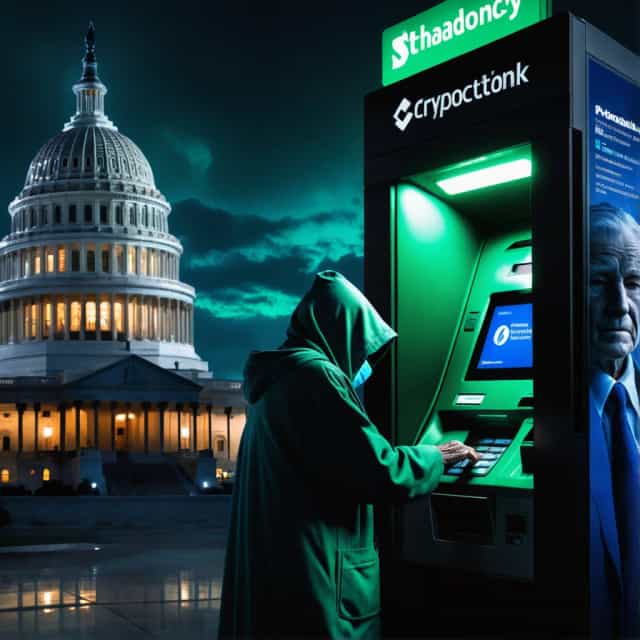
출처: Block Media
BlackRock’s $260 Million Crypto ETF Revenue: Redefining Traditional Finance
BlackRock, the global investment management powerhouse, has set a new benchmark for traditional financial institutions venturing into the world of digital assets. With its cryptocurrency exchange-traded funds (ETFs) generating $260 million in annual revenue, BlackRock’s bold foray into Bitcoin (BTC) and Ethereum (ETH) ETFs has rapidly established it as a formidable player in the crypto space. In less than two years, the firm’s successes underscore the growing integration of digital assets into mainstream financial markets, serving as both a model and a catalyst for other institutions.
How BlackRock’s Bitcoin and Ethereum ETFs Deliver High Profits
According to Leon Waidmann, Head of Research at the Onchain Foundation, BlackRock’s cryptocurrency ETFs have become exceptional revenue-generating tools. Collectively, Bitcoin-focused ETFs contribute $218 million annually, while Ethereum ETFs add $42 million. This impressive performance highlights the strategic importance of BlackRock’s flagship offerings, including the iShares Bitcoin Trust (IBIT), its first spot Bitcoin ETF launched on January 11, 2024.
BlackRock’s IBIT has grown exponentially, amassing $89 billion in assets under management (AUM). The fund commands an impressive 58.7% share of the U.S. spot Bitcoin ETF market—far ahead of Fidelity's Bitcoin ETF, which holds $22.8 billion and a 15% market share.
This rapid revenue achievement is rare within the financial sector, where fintech startups often take over a decade to achieve comparable milestones. BlackRock’s success underscores its ability to leverage its resources, reputation, and market leadership to dominate an emerging asset class quickly.
Setting a Benchmark for Institutional Adoption
BlackRock’s entrance into cryptocurrencies has sent ripples across traditional finance. Waidmann compares the firm’s strategy to Amazon’s initial e-commerce expansion, emphasizing that BlackRock’s ETFs likely represent just the beginning of its broader crypto ambitions. Analysts point to potential ventures into custodial services, staking, and digital asset derivatives as the firm solidifies its foothold in the sector.
This profitability has compelled institutional investors—including asset managers, pension funds, and insurers—to reevaluate their stance on cryptocurrency investments. What was once seen as a highly speculative niche is now emerging as a viable and lucrative asset class.
“If BlackRock can generate $260 million annually from Bitcoin and Ethereum, others will inevitably follow,” Waidmann stated.
The broader adoption of cryptocurrency ETFs is expected to fuel extended investment cycles within the market. André Dragosch, Head of European Research at Bitwise, projects that Bitcoin’s price could potentially reach $200,000 by the end of the year, boosted by corporate inflows and inclusion in U.S. 401(k) retirement plans.
Sustainability: Can BlackRock Maintain Its Competitive Edge?
Despite its impressive performance, questions remain about the sustainability of BlackRock’s crypto ETF profitability. The ETF industry is highly competitive, with issuers frequently reducing fees to attract investment capital. However, BlackRock’s expansive distribution network, coupled with its superior liquidity, provides the firm with a unique competitive advantage.
The cryptocurrency market received a major boost at the beginning of 2024 when U.S. regulators approved spot Bitcoin ETFs, opening the doors to greater institutional adoption. BlackRock’s early position as a BTC holder and its first-mover status within the ETF space have proven advantageous, yet market uncertainty and potential policy changes could pose risks moving forward.
Impact on the Broader Financial Landscape
BlackRock’s success has proven that cryptocurrencies can serve as a serious revenue-generating asset class for traditional financial institutions. The firm’s achievements are reshaping attitudes across the global financial ecosystem, creating pressure for competitors to explore digital asset strategies and diversify their portfolios.
As cryptocurrencies continue to mature, BlackRock’s pioneering role in this transformation highlights the shifting tides in finance, where digital assets are increasingly viewed as integral to the future of wealth management. Waidmann aptly summarized the significance of these developments: “The world’s largest asset manager has proven cryptocurrencies can be a serious revenue center, sending shockwaves through traditional finance.”
The milestone forged by BlackRock underscores the potential for digital assets to redefine institutional investing, sparking innovation, adoption, and evolution in the financial industry as a whole.










